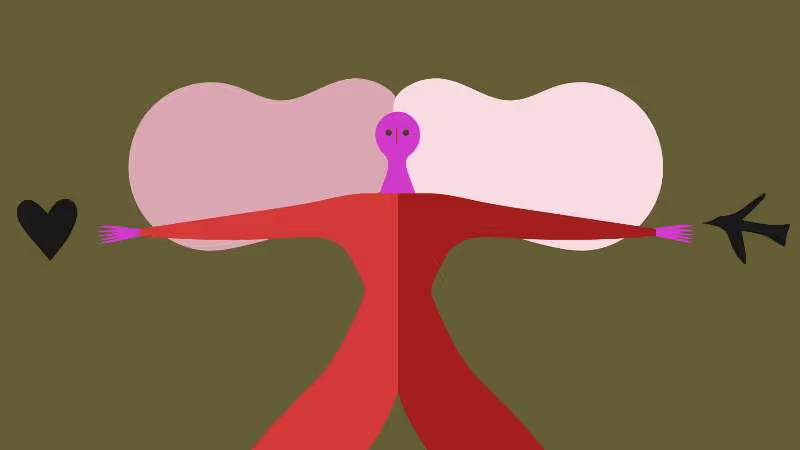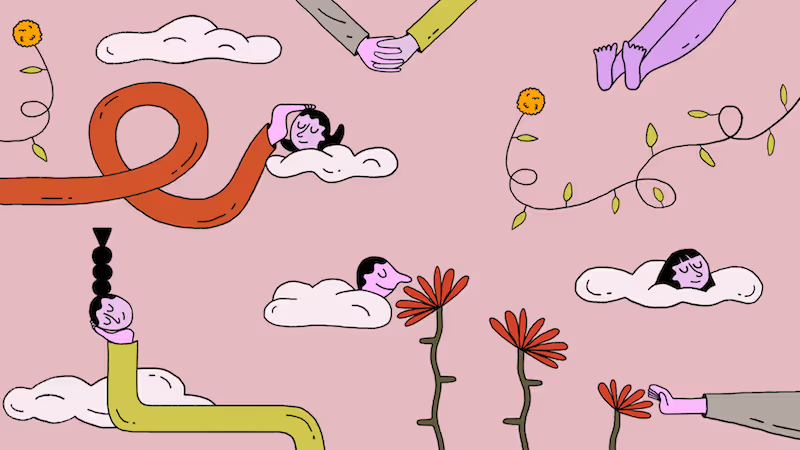Freedom and security are twin faces of the same coin. Humans require both and we put a lot of pressure on our relationships to sustain the careful balance between them. Over the last few decades, the western experience of freedom and security has existed on a pendulum, swinging toward risk and recalibrating toward safety, back and forth. Birth-controlled sex, normalized divorce, democratized technology, and more have contributed to unprecedented levels of freedom. Reflexively—and in the absence of traditional institutions that once governed behavior, however inadequate they may have been—we’ve imposed measures of safety upon ourselves to keep the balance in check. It’s the kind of internal surveillance French philosopher Michel Foucault called “panopticism.” Security that manages freedom can look like swapping metal for rubber on playgrounds. It can also look like the necessary expansion of our understanding and communication around consent. Perhaps the best example, however, is our ongoing quest to quantify every aspect of our lives through apps that track what we eat, how much we sleep, how long we walk, and how we date.
We cherish our freedom but we impose structure to regulate it. We value our security, but peace of mind can leave us yearning for mystery and spontaneity, facets of Eroticism which extend to all areas of life. In the past year, as the Covid-19 pandemic has gripped the world, the pendulum that swings between freedom and security has snapped off its hinge. Going into lockdown meant a sudden and extreme emphasis on security as well as a collapse of freedom that, almost a year later, continues to be the norm. For so many of us, our intense focus on safety has meant a stifling of the things that contribute to our Erotic experience of life—trying new restaurants, making new friends, meeting a stranger who becomes a lover. It’s important to remember that Eroticism isn’t inherently sexual; it’s an experience of aliveness which beats back deadness. And if ever there is a time in which deadness needs to be countered, it is these moments of crisis in which the shadow of death is ever-present.
Flatness Affects Emotional Connection
The many of us who were privileged enough to be able to stay home quickly found that, in a world of uncertainty, we could only control ourselves. We created routines and rituals. We meal-planned. Our calendars filled up with precisely scheduled work calls and video catch ups with friends and family. We drew physical boundaries. I work at the kitchen table. You do your remote learning in the den. And each experience of loss—death of a loved one, getting laid off, the pounding desire for unattainable touch—has made us dig our heels into our need for security all the more.
In flattening the curve, we’ve also flattened ourselves. We’ve doubled down on our procedures, enduring the monotony of routine for a semblance of safety. How many different proteins can we cook in how many different ways? How many times can we go from the couch to the bed to the kitchen table? Do we want to watch another movie tonight? And after all of this repetition, do we really want to have sex? Make love? Does even masturbation feel like too much effort? Flatness affects our emotional connection, and that affects everything else.
Finding Our Way Back to the Erotic
No matter how effective our routines have been—or how much we’ve even enjoyed them—if they’re not filled with creativity, they inevitably leave us numb. Creativity is where Eroticism lives. Powered by curiosity, intuition, and the energy of imagination, creativity invites us into the unknown. And Eroticism is about bringing adventure back into play. It’s about bringing creativity into our lives.
When escapism becomes video games, doom scrolling, and social media—repetitive, addictive activities we can do from the safety of our home while getting the security of a guaranteed dopamine hit—it can be hard to rewire ourselves to get creative about how to feel free. But freedom in confinement comes from the imagination. Just like a child can imagine they are a sea captain navigating an ocean voyage or that a cardboard box is a castle, we can imagine that a neighborhood walk is an exploratory adventure, using all of our senses to experience it. We can imagine that our kitchen, with the lights off, candles lit, and a delicious meal for two is a little hole in the wall restaurant in Paris. This is Erotic Thinking.
Emotional Connection Requires New Patterns
Trying something new—especially something creative—is a great way to jumpstart emotional connection. Having a project, building something, planting, watching children play, cooking or baking (especially the recipes of our ancestors), setting the table with good linens and china for a change, turning the living room into a hotel, eating a piece of chocolate like it's the first time, creating a playlist for someone specific…. It’s the small, heartwarming, sensual thing that brings light into our lives in a new way.
And if even that feels difficult, start here: close your eyes and imagine feeling totally flat. What are you thinking? What other feelings come up? How does your body feel? What does it make you want to do?
Now, reverse that. Imagine the most joyful feeling you can conjure. Take it to its extreme. What thoughts inspire that state of mind? How does it feel in your body? What might you feel motivated to do? Sometimes just taking this mindset of peaceful excitement with us as we continue in our routines can help refresh them. And when we’re ready to take it further, our imagination will be waiting, ready.








.svg)





